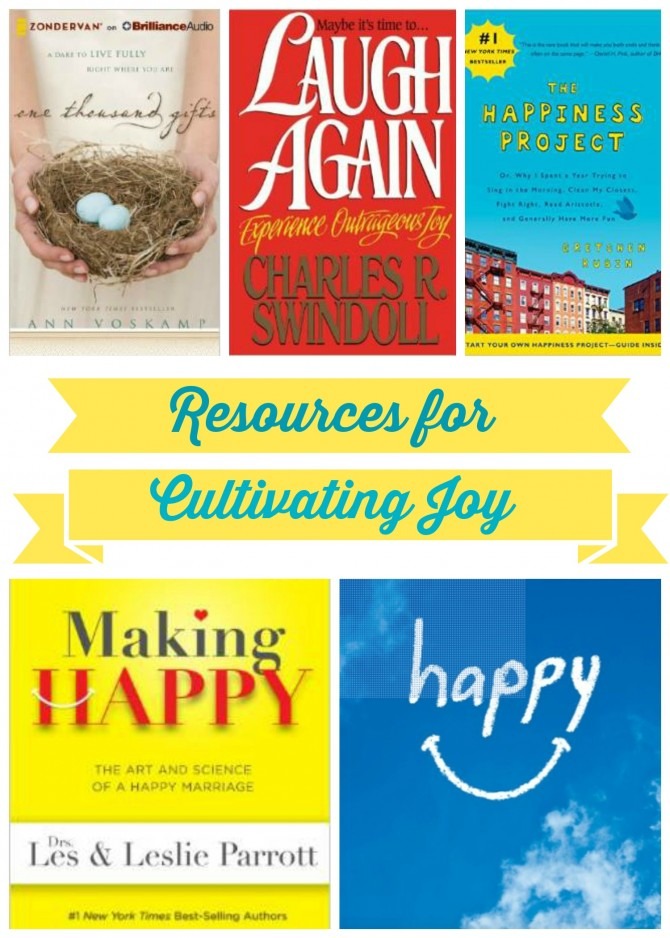I have known my friend Bobbie for most of my life. She and her husband became close with my parents when they served together as leaders in my church’s youth group (brave souls!), and though we’ve never been particularly close, Bobbie has served as a positive role model and incessant encourager to me over the last couple of decades. When I think of Bobbie, the first word that comes to mind is exuberant: she is one of those rare individuals who always seems to have a smile on her face and an uplifting sentiment on her lips. Based on her effusive disposition, one might assume that Bobbie has led a charmed life. This is not the case; Bobbie makes no secret of the fact that she has experienced more than her share of suffering, pain, and hardship. But rather than wallowing in self pity, Bobbie chooses to praise God in the midst of her circumstances. She is a blessing and an inspiration to everyone she meets, exhibiting an internal beauty that I cannot help but desire for myself.

When selecting the character traits I would like to explore in this series, I knew that this quality I have witnessed in Bobbie was one that should be on my list. I struggled, though, to identify this particular trait: was it happiness? contentment? optimism? I eventually settled on joyfulness. Though “happiness” and “joy” are often used interchangeably, I tend to think of happiness as being fleeting and largely dependent on temporal circumstances, whereas joy is internal and totally independent of external factors. [Note: As I mentioned in my “What I Learned in October” post, scientists have concluded that happiness can be attributed to three major sources: genes, events and values. I would argue that what these scientists are calling “happiness” is more in line with my personal definition of joy.]
The topic of joy is actually not a new area of study for me. As someone who has battled clinical depression throughout my life, “happiness” has often felt unattainable: pills and therapy and even the most envious of life circumstances can only take me so far. Joy, on the other hand, is a worthy and more satisfying substitute for ephemeral happiness. Joy also has the added benefit of being cultivable. And therein lies the question: how, exactly, does one cultivate joy?
When I was in high school, my search for an answer to this question led me to James 1:2-4, and it quickly became my favorite passage of scripture. In fact, these verses were so beloved to me that they served as the subject for my high school valedictory speech. (<— That sounds a whole lot more impressive than it is; my graduating class had SEVEN valedictorians, and the poor audience had to sit through speeches from each of us.) My graduation was less than a year after the September 11th terrorist attacks, and I talked about how trials big and small can be provide fertile soil for the cultivation of perseverance and maturity. God doesn’t waste the challenging circumstances of our lives, and viewing these trials as gifts from God has the unexpected outcome of infusing our lives with a spirit of joyfulness.
Thankfully, surviving trials is not the only way to cultivate joy. In doing preliminary research of this topic, I’ve discovered a number of other habits that the “experts” suggest for developing a joyful heart. Here are some of my favorites:
1. Keep a Joy Journal.
When I was younger, I had a special scrapbook that I called my “Positive Attitude Book.” It was filled with articles, poems, stories, and pictures that simply made me happy. I made it a point to only add to my book when I was in a joyful mood, and I would return to the journal for a pick-me-up on days when I was feeling blue. These days, I try to be intentional about noting moments of happiness and joy in my Day One journal. It’s easy for my life to feel dominated by the negative, but recording the happier moments forces me to remember the daily gifts that God has planted all around me.
2. Surround yourself with joyful people.
Joy is contagious, and being around joyful people always infuses my day with positivity. Unfortunately, the converse is true as well: spending too much time with negative people can quickly drag me down. For those times when negative individuals prove unavoidable, it’s important for me fortify myself by filling up my joy tank in other ways.
3. Immerse yourself in art and beauty.
This can take so many forms: going for a walk in nature, listening to uplifting music, reading a passage of poetry, examining an inspiring painting. . . . Each of these draws me nearer to the heart of God and infuses a burst of joy into my day.
4. Celebrate.
Our culture is pretty good at celebrating the big things, like birthdays and graduations and weddings, but we neglect the daily events that are equally worthy of celebration. I love the idea of finding one thing to celebrate each day, even if it’s something as small as a deal scored at the grocery store or an awesome workout. Helping others to identify and celebrate their small achievements can be joy-inducing as well!
5. Do something meaningful.
Sometimes a lack of joy can be attributed to a lack of meaning in our lives. Engaging in an act of service, completing a long-delayed project, or having a heartfelt conversation with a friend are all ways of adding meaning to your day, and joy to your life.
+ + + + +
I believe that ultimately, true joy is best found through a meaningful relationship with Jesus. Each of the above habits will only succeed in bringing me joy in so far as they draw me closer to the Lord. He is the ultimate source of joy, both in this life and the next. As His children, He desires for us to be filled with the joy of knowing and following Him.
I’m certainly not done with this topic. Here are some resources I’d like to investigate as I further explore the subject of joy:
One Thousand Gifts, by Ann Voskamp: “A beautifully practical guide to living a life of joy, One Thousand Gifts invites you to wake up to God’s everyday blessings.”
Laugh Again, by Charles Swindoll: “In Laugh Again, readers will discover ways to live in the present, say ‘no’ to negativism, and realize that, while no one’s life is perfect, joy and humor can be inspirational.
The Happiness Project, by Gretchen Rubin: “Among other things, [Rubin] found that novelty and challenge are powerful sources of happiness; that money can help buy happiness, when spent wisely; that outer order contributes to inner calm; and that the very smallest of changes can make the biggest difference.
Making Happy, by Les and Leslie Parrott: “Discover the six counter-intuitive dials to turn right now in your relationship. these are proven happiness boosters. and let’s face it, knowing how to make happiness—the deep and abiding joy of feeling good together—isn’t always easy for time-starved and sleep-deprived couples.”
Happy (Documentary): “Combining real life stories of people from around the world and powerful interviews with the leading scientists in happiness research, HAPPY explores the secrets behind our most valued emotion.”
+ + + + +
Do you consider yourself to be a joyful person? If so, what is the “secret” to your joy? If not, what are some steps you can be taking to cultivate joy in your life?

